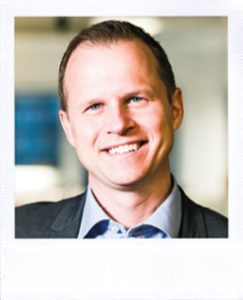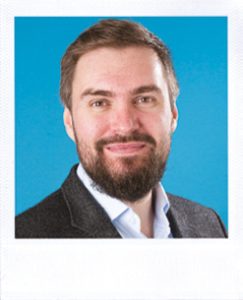Given the widescale adoption of hybrid working, how FMs manage wellbeing at work can no longer be focused solely on the physical office environment. Given this change in workplace work patterns, how can FMs adapt their approach to safeguard employee physical and mental health? Can the use of digital technology help ensure employee productivity, wellbeing, inclusion and belonging?
The concept of hybrid working isn’t a new one. However, its adoption has been thrust into the fray at maximum velocity as organisations tussle with the concept of whether they still require a physical workspace. At Pareto we’ve seen first-hand how our team members have been impacted, specifically with regards to mental health. The last two years have brought huge uncertainty in many aspects of people lives that, until that point had been reasonably static. That is why we must understand as employers who care for our team members that the situation has changed and we must adapt.
We are fortunate enough to deliver services to some of the highest profile and innovative workspaces in the world. These come with enviable cultures of modern practices, flexible approaches to workspace and always looking for ways to innovate to attract the best talent. The workspace in many of these environments is an extension of people’s personal lives. Whether that be music rooms, amphitheatres, gyms, showers, cinemas, 3D printing rooms, games areas or any other scenarios, the workspace is not just for work. This poses an interesting problem. What if team members don’t need all those things to feel valued in their roles? What if allowing them to work from home, or indeed anywhere else is the answer? This is where FM has a genuine role to play in supporting the physical and mental health of all team members.
We see this from two different perspectives. Firstly, supporting people at home. Many team members are not set up at home to work 40 hours per week. People are working from kitchen tables, beds, sofas and it’s hurting them physically. That is why FMs must work hard to equip people so they can work safely and consistently.
Secondly, we need to support people in the workspace, and we are seeing this being delivered via events. People need a reason to come into the workspace now, and FM is perfectly placed to organise events that entice people in. Whether it is talks from senior leaders, seminars led by celebrities or simply drinks on a Thursday afternoon, all these things help with people returning to operate in the physical environment.
However, we have to go further than this and this is where supporting people’s mental health becomes critical. We are finding people need to feel connected to the mothership and people need consistency in the support they receive.
At Pareto we’ve used technology to enable this in several ways. The first is our partnership with SHAPE (the System for Health, Attendance, Productivity and Engagement) – the world’s most comprehensive online employee performance survey. It brings together all the factors necessary to get to know our people and help them get the most out of their work by understanding their current needs. Secondly is the adoption of YuLife, an app that provides support in several areas including life assurance, professional mental health support, 24/7 access to a private virtual doctor including prescriptions and several health benefits. Everyone is invited to join, and everyone can see the progress that has been made by Pareto team members. This level of gamification has been instrumental in bringing people together. In addition to this we have revamped our internal communications strategy, opening up opportunities for team members to be involved in wider community initiatives such as skydives, Tough Mudder’s and marathons. We find this connection to the team offers a deeper level of support than we could ever provide via a physical environment.
As we all continue to adapt to consistent changes in ways of working, it will be critical that mental health is considered just as much as physical to ensure that we provide the highest levels of support to our team members. FM is so well placed to continue its strategic role in supporting organisations to thrive. This is an opportunity the sector must take.
 THE DIGITAL WORKPLACE EXPERT’S VIEW
THE DIGITAL WORKPLACE EXPERT’S VIEW
PETER REIGO,
CEO/FOUNDER FLOWSCAPE SOLUTIONS
What employees do, why they do it and where they do it will always have an impact on their wellbeing, depending on a whole host of factors. That is not a new thing. But the workplace experiment driven by the pandemic and the resulting pursuit of hybrid working means we are more aware of it. We look through a much sharper lens than before.
Employers, landlords and managers want their people back at work – but they need them to be happy, engaged and productive. People cannot be forced to attend the traditional workplace environment anymore. To make it a better place, an attractive place to be (as opposed to working at home) and a space that supports physical and mental wellbeing, one needs research – decision makers need evidence of its effectiveness. We need to understand how a space is used.
Because FMs need to combine their core skills with that data, we at Flowscape Solutions gather that evidence. Used correctly it will enable managers, leaders and, yes, even chief workplace officers, to make decisions about how and when their offices open. The use of sensors, systems and apps can generate information about workflow, space utilisation and the effectiveness of a space. Collecting accurate, granular real-time data about the precise utilisation of every single resource throughout the day is invaluable for all back-office teams – FM, HR, and IT, the estates teams – as well as end users.
This helps reduce time-wasting and tears down the barriers preventing people collaborating, sharing ideas and sparking off each other. Digital systems foster interaction – via an app on your smartphone or your PC – so you can plan your day and where you spend it.
The focus is on the end user experience (UX), and to improve that UX collaboration the data, provides a series of workplace analytics that helps FMs create an office space strategy based on accurate events. The data is there to help workplace users have a better experience, with the result that employees feel empowered – with the ability to make an informed choice about when to use an office, where to sit, who to sit with and how much or how little they want to connect with colleagues.
Leesman has evidence proving that around 80 per cent of employees are working in a hybrid way, that includes an element of home working. Tim Oldman, Leesman CEO, argues that employees are not returning to an office to be productive – the majority can achieve this at home. Nor is it for collaborative working. Leesman says it is about connection.
People come to the office to be around others, to socialise and engage. To choose when, where and how to do that, you need space utilisation data. Take it, digest it, and apply it alongside FM core services such as reliable Wi-Fi, clean toilets, tidy meeting rooms and available parking and you will be supporting the health and wellbeing of staff and enabling a creative, effective work environment.






